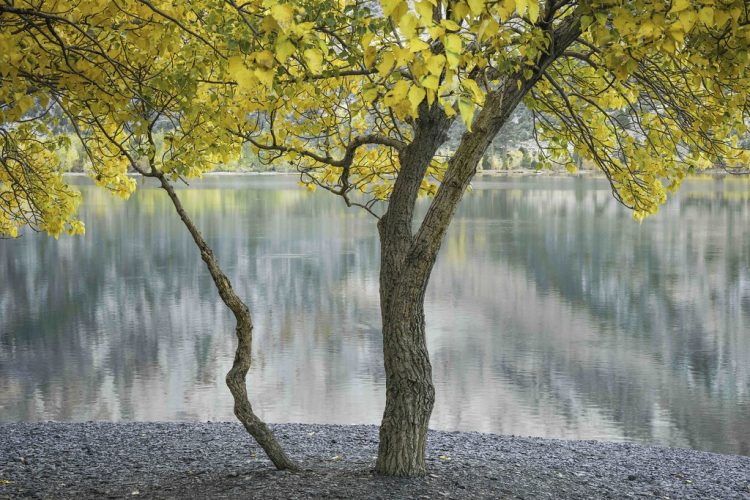Dover Friends Meeting Epistle on Divestment

Many are the Vanities and Luxuries of the present Age, and in labouring to support a Way of living conformable to the present World, the Departure from that Wisdom that is pure and peaceable, hath been great.
—John Woolman, from “On the Slave Trade”
Recently Dover Friends Meeting held a short series of workshops at which members of the Meeting were given the chance to learn more about Meeting’s finances and management thereof. During the first of three workshops, a number of Friends expressed their concern over making sure that Meeting’s investments were consistent with our Quaker values. Specifically, the concern of climate change has become great for many Friends, and several expressed an interest in divesting from any significant holdings in the fossil fuel industry.
After finding that one of Dover Friends Meeting’s holdings in a Vanguard fund did have significant amounts of fossil fuel stock, the Meeting reached consensus that it was not consistent with our values to continue owning shares in that fund, and we divested of the shares, putting the money into a fund that has no fossil fuel holdings.
Meeting then agreed that the logical next step was, rather than remaining silent about what we had done, to let Vanguard know why we had divested, i.e., that it was not just a financial move that would otherwise go unnoticed at Vanguard– it was a move based on principle and faith. The letter sent to Vanguard regarding this matter is attached to this epistle.
We now wish to share with Friends Meetings, other Quaker establishments, and individual Friends our belief that it is time for Quakers to take a similar step toward a future which will eventually allow us to tread more lightly upon the Earth.
For many years now, climate scientists have been warning us about the effects of fossil fuel use on the Earth’s climate. As early as 1995, a majority of the world’s climate scientists agreed that humankind was changing the globe’s climate.
A mere two tenths more of a degree (centigrade) average temperature will double the number of Katrina-strength Hurricanes. Recently a leading scientist pointed out that even the middle prediction of warming by the end of the century will make Earth hotter than anytime in the past 35 million years. The icecaps would then take longer to melt, but when they do the result will be 65-100 feet of sea level rise.
Around the world, stability and well-being are threatened by the effects of climate change. Millions of people may die in this century as a direct result of climate change, and the people most likely to pay the highest cost are our poorest global neighbors.
Only a few short years ago, many Friends expressed concern over climate change in the context of it being a problem for their children and grandchildren. Dealing with the effects of climate change will be a problem for future generations, but it is also a problem for us right now. The loss of Arctic ice cover has already led to the jamming of the jet stream that gave us such a crazy winter this year along with Hurricane Sandy, and is responsible for the tens of thousands of deaths in heat waves in Russia and Europe in recent years past, as well as the horrid drought in the American Southwest and Northern Mexico, resulting in serious damage to agricultural output. And yet we have had only a tiny taste of what is to come. We, as Friends, have determined that we must divest from fossil fuel holdings because bankrolling their continued use will lead to catastrophe, and sooner than one would like to think.
We are clear that this decision to divest is consistent with Quaker values. The Earth and all its life is God’s creation. In Genesis 1:26 God gives “dominion” over all other life on the planet to humans. As Friends, we understand the word “dominion” to be synonymous with stewardship. Jesus stated that the greatest commandments are, “Love the Lord your God with all your heart and with all your soul and with all your mind and with all your strength.’ The second is this: ‘Love your neighbor as yourself.’” Knowing that the effects of climate change will adversely affect populations worldwide, with the greatest impact upon the poorest people of the world, we believe that we have a responsibility to take every measure possible to ease the impact upon them, and on God’s other creatures as well. As good stewards of the Earth, we seek to find ways to tread as lightly as possible on it, and one step in doing so is to refuse to be invested in the business of burning more fossil fuels.
Many Friends have wondered how we can free ourselves of our dependence on fossil fuels. While making practical changes in one’s daily life is a good starting point, many Friends have found it very difficult to make changes because of costs involved and our dependence on fossil fuels of various types for decades. A starting point, though clearly not the end point, is for Quaker-related organizations to look at the investments they have made, and divest accordingly. We look now to investing in the future, rather than in the past.
We can not afford morally or financially to keep investing in the assured destruction of our civilization. Two hundred and fifty years ago John Woolman exhorted us to stop enslaving men and women; today we need to stop enslaving nature. Unchecked, slavery eventually results in rebellion, and while the revolutions of men are bloody enough, nature’s final rebellion against our abuse of her delicately crafted carbon balance will eliminate our species with overwhelming floods and fires. Yet this need not happen, if we walk cheerfully over the earth, speaking to that of God in every one of us that abides in love, rather than greedily betting on profits from fossil fuels.
Prayerfully,
Dover Friends Meeting
For Friends who want to read John Woolman’s essay, please visit http://www.qhpress.org/texts/oldqwhp/wool-496.htm.

